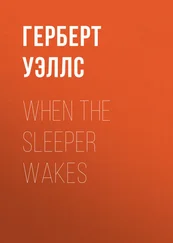Герберт Уэллс - Mankind in the Making
Здесь есть возможность читать онлайн «Герберт Уэллс - Mankind in the Making» — ознакомительный отрывок электронной книги совершенно бесплатно, а после прочтения отрывка купить полную версию. В некоторых случаях можно слушать аудио, скачать через торрент в формате fb2 и присутствует краткое содержание. Жанр: Философия, foreign_prose, на английском языке. Описание произведения, (предисловие) а так же отзывы посетителей доступны на портале библиотеки ЛибКат.
- Название:Mankind in the Making
- Автор:
- Жанр:
- Год:неизвестен
- ISBN:нет данных
- Рейтинг книги:4 / 5. Голосов: 1
-
Избранное:Добавить в избранное
- Отзывы:
-
Ваша оценка:
- 80
- 1
- 2
- 3
- 4
- 5
Mankind in the Making: краткое содержание, описание и аннотация
Предлагаем к чтению аннотацию, описание, краткое содержание или предисловие (зависит от того, что написал сам автор книги «Mankind in the Making»). Если вы не нашли необходимую информацию о книге — напишите в комментариях, мы постараемся отыскать её.
Mankind in the Making — читать онлайн ознакомительный отрывок
Ниже представлен текст книги, разбитый по страницам. Система сохранения места последней прочитанной страницы, позволяет с удобством читать онлайн бесплатно книгу «Mankind in the Making», без необходимости каждый раз заново искать на чём Вы остановились. Поставьте закладку, и сможете в любой момент перейти на страницу, на которой закончили чтение.
Интервал:
Закладка:
It does not at all follow that even the Rutland 103 represents the possible minimum of infant mortality. One learns from the Register-General’s returns for 1891 that among the causes of death specified in the three counties of Dorset, Wiltshire, and Hereford, where infant mortality is scarcely half what it is in the three vilest towns in England in this respect, Preston, Leicester, and Blackburn, the number of children killed by injury at birth is three times as great as it is in these same towns. Unclassified “violence” also accounts for more infant deaths in the country than in towns. This suggests pretty clearly a delayed and uncertain medical attendance and rough conditions, and it points us to still better possibilities. These diagrams and these facts justify together a reasonable hope that the mortality of infants under five throughout England might be brought to less than one-third what it is in child-destroying Lancashire at the present time, to a figure that is well under ninety in the thousand.
A portion of infant and child mortality represents no doubt the lingering and wasteful removal from this world of beings with inherent defects, beings who, for the most part, ought never to have been born, and need not have been born under conditions of greater foresight. These, however, are the merest small fraction of our infant mortality. It leaves untouched the fact that a vast multitude of children of untainted blood and good mental and moral possibilities, as many, perhaps, as 100 in each 1,000 born, die yearly through insufficient food, insufficient good air, and insufficient attention. The plain and simple truth is that they are born needlessly. There are still too many births for our civilisation to look after, we are still unfit to be trusted with a rising birth-rate. [Footnote: It is a digression from the argument of this Paper, but I would like to point out here a very popular misconception about the birth-rate which needs exposure. It is known that the birth-rate is falling in all European countries – a fall which has a very direct relation to a rise in the mean standard of comfort and the average age at marriage – and alarmists foretell a time when nations will be extinguished through this decline. They ascribe it to a certain decay in religious faith, to the advance of science and scepticism, and so forth; it is a part, they say, of a general demoralization. The thing is a popular cant and quite unsupported by facts. The decline in the birth-rate is – so far as England and Wales goes – partly a real decline due to a decline in gross immorality, partly to a real decline due to the later age at which women marry, and partly a statistical decline due to an increased proportion of people too old or too young for child-bearing. Wherever the infant mortality is falling there is an apparent misleading fall in the birth-rate due to the “loading” of the population with children. Here are the sort of figures that are generally given. They are the figures for England and Wales for two typical periods.
Period 1846-1850 33 8 births per 1000
Period 1896-1900 28 0 births per 1000
– —
5.8 fall in the birth-rate.
This as it stands is very striking. But if we take the death-rates of these two periods we find that they have fallen also.
Period 1846-1850 23 3 deaths per 1000
Period 1896-1900 17 7 deaths per 1000
– —
5.6 fall in the death-rate.
Let us subtract death-rate from birth-rate and that will give the effective rate of increase of the population.
Period 1846-1850 10 5 effective rate of increase
Period 1896-1900 10 3 effective rate of increase
– — -
.2 fall in the rate of increase.
But now comes a curious thing that those who praise the good old pre-Board School days – the golden age of virtuous innocence – ignore. The Illegitimate births in 1846-1850 numbered 2.2 per 1000, in 1896-1900 they numbered 1.2 per 1000. So that if it were not for this fall in illegitimate births the period 1896-1900 would show a positive rise in the effective rate of increase of .8 per thousand. The eminent persons therefore who ascribe our falling birth-rate to irreligion and so forth, either speak without knowledge or with some sort of knowledge beyond my ken. England is, as a matter of fact, becoming not only more hygienic and rational, but more moral and more temperate. The highly moral, healthy, prolific, pious England of the past is just another poetical delusion of the healthy savage type.]
These poor little souls are born, amidst tears and suffering they gain such love as they may, they learn to feel and suffer, they struggle and cry for food, for air, for the right to develop; and our civilisation at present has neither the courage to kill them outright quickly, cleanly, and painlessly, nor the heart and courage and ability to give them what they need. They are overlooked and misused, they go short of food and air, they fight their pitiful little battle for life against the cruellest odds; and they are beaten. Battered, emaciated, pitiful, they are thrust out of life, borne out of our regardless world, stiff little life-soiled sacrifices to the spirit of disorder against which it is man’s preeminent duty to battle. There has been all the pain in their lives, there has been the radiated pain of their misery, there has been the waste of their grudged and insufficient food, and all the pain and labour of their mothers, and all the world is the sadder for them because they have lived in vain.
§ 2
Now, since our imaginary New Republic, which is to set itself to the making of a better generation of men, will find the possibility of improving the race by selective breeding too remote for anything but further organised inquiry, it is evident that its first point of attack will have to be the wastage of such births as the world gets to-day. Throughout the world the New Republic will address itself to this problem, and when a working solution has been obtained, then the New Republican on press and platform, the New Republican in pulpit and theatre, the New Republican upon electoral committee and in the ballot box, will press weightily to see that solution realised. Upon the theory of New Republicanism as it was discussed in our first paper an effective solution (effective enough, let us say, to abolish seventy or eighty per cent.) of this scandal of infantile suffering would have precedence over almost every existing political consideration.
The problem of securing the maximum chance of life and health for every baby born into the world is an extremely complicated one, and the reader must not too hastily assume that a pithy, complete recipe is attempted here. Yet, complicated though the problem is, there does not occur any demonstrable impossibility such as there is in the question of selective breeding. I believe that a solution is possible, that its broad lines may be already stated, and that it could very easily be worked out to an immediate practical application.
Let us glance first at a solution that is now widely understood to be incorrect. Philanthropic people in the past have attempted, and many are still striving, to meet the birth waste by the very obvious expedients of lying-in hospitals, orphanages and foundling institutions, waifs’ homes, Barnardo institutions and the like, and within certain narrow limits these things no doubt serve a useful purpose in individual cases. But nowadays there is an increasing indisposition to meet the general problem by such methods, because nowadays people are alive to certain ulterior consequences that were at first overlooked. Any extensive relief of parental responsibility we now know pretty certainly will serve to encourage and stimulate births in just those strata of society where it would seem to be highly reasonable to believe they are least desirable. It is just where the chances for a child are least that passions are grossest, basest, and most heedless, and stand in the greatest need of a sense of the gravity of possible consequences to control their play, and to render it socially innocuous. If we were to take over or assist all the children born below a certain level of comfort, or, rather, if we were to take over their mothers before the birth occurred, and bring up that great mass of children under the best conditions for them – supposing this to be possible – it would only leave our successors in the next generation a heavier task of the same sort. The assisted population would grow generation by generation relatively to the assisting until the Sinbad of Charity broke down. And quite early in the history of Charities it was found that a very grave impediment to their beneficial action lay in one of the most commendable qualities to be found in poor and poorish people, and that is pride. While Charities, perhaps, catch the quite hopeless cases, they leave untouched the far more extensive mass of births in non-pauper, not very prosperous homes – the lower middle-class homes in towns, for example, which supply a large proportion of poorly developed adults to our community. Mr. Seebohm Rowntree, in his “Poverty” (that noble, able, valuable book), has shown that nearly thirty per cent. at least of a typical English town population goes short of the physical necessities of life. These people are fiercely defensive in such matters as this, and one may no more usurp and share their parental responsibility, badly though they discharge it, than one may handle the litter of a she-wolf.
Читать дальшеИнтервал:
Закладка:
Похожие книги на «Mankind in the Making»
Представляем Вашему вниманию похожие книги на «Mankind in the Making» списком для выбора. Мы отобрали схожую по названию и смыслу литературу в надежде предоставить читателям больше вариантов отыскать новые, интересные, ещё непрочитанные произведения.
Обсуждение, отзывы о книге «Mankind in the Making» и просто собственные мнения читателей. Оставьте ваши комментарии, напишите, что Вы думаете о произведении, его смысле или главных героях. Укажите что конкретно понравилось, а что нет, и почему Вы так считаете.












